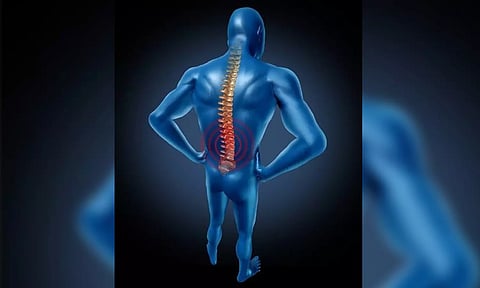

CHENNAI: Spinal Muscular Atrophy (SMA) is a rare disease in children, but because of a lack of awareness of the signs and preventive strategies, it is not just children but even adults who are getting affected.
The National Policy for Rare Diseases by the government is a step in the right direction that calls out newborn screening as a prime illustration of secondary prevention, as it involves the screening of infants shortly after birth, before the onset of disease symptoms.
SMA is a genetic condition characterized by the loss of motor neurons, leading to progressive muscle weakness and, in severe cases, life-threatening complications. By identifying potential health issues early on, prompt treatment can be initiated, thereby effectively preventing both morbidity and mortality.
Professor Sheffali Gulati, Head Child Neurology Division, Department of Pediatrics at AlIMS, emphasizes that screening is an invaluable tool for identifying SMA risk. "These preventive tools empower prospective parents to understand their carrier status and make informed decisions about family planning. By identifying carriers early on through antenatal or prenatal screening, we can implement necessary interventions and provide adequate support to families. Once it is determined that both parents are carriers of the SMN gene, it becomes important to get a newborn screening test done,” she said.
Antenatal screening is an essential preventive strategy that allows prospective parents to determine their carrier status. By testing both parents, it becomes possible to identify if they carry the genetic mutation associated with SMA. If both parents are found to be carriers, the emphasis shifts to prenatal screening, enabling families to make informed decisions and access appropriate medical care and support.
Dr Sujatha Jagadeesh, Head dept of clinical genetics at Mediscan and Director of Centre of Excellence for Rare Disorders at VHS says, "Early intervention and timely treatment are crucial in shaping the prognosis and outcomes for individuals with SMA. Initiating therapy within the first weeks or months of life can help preserve motor function, enhance respiratory support, and potentially improve long-term outcomes. Also, genetic confirmation is needed for treatment, planning next pregnancy and testing in pregnancy."
She added that adequate utilisation of a multidisciplinary approach by coordinating supportive treatments such as physical therapy, respiratory support, and nutritional management plays a crucial role in optimizing the quality of life for individuals with SMA." A multidisciplinary approach with an emphasis put on early diagnosis which can enable timely treatment interventions that helps patients to live enhanced quality lives.